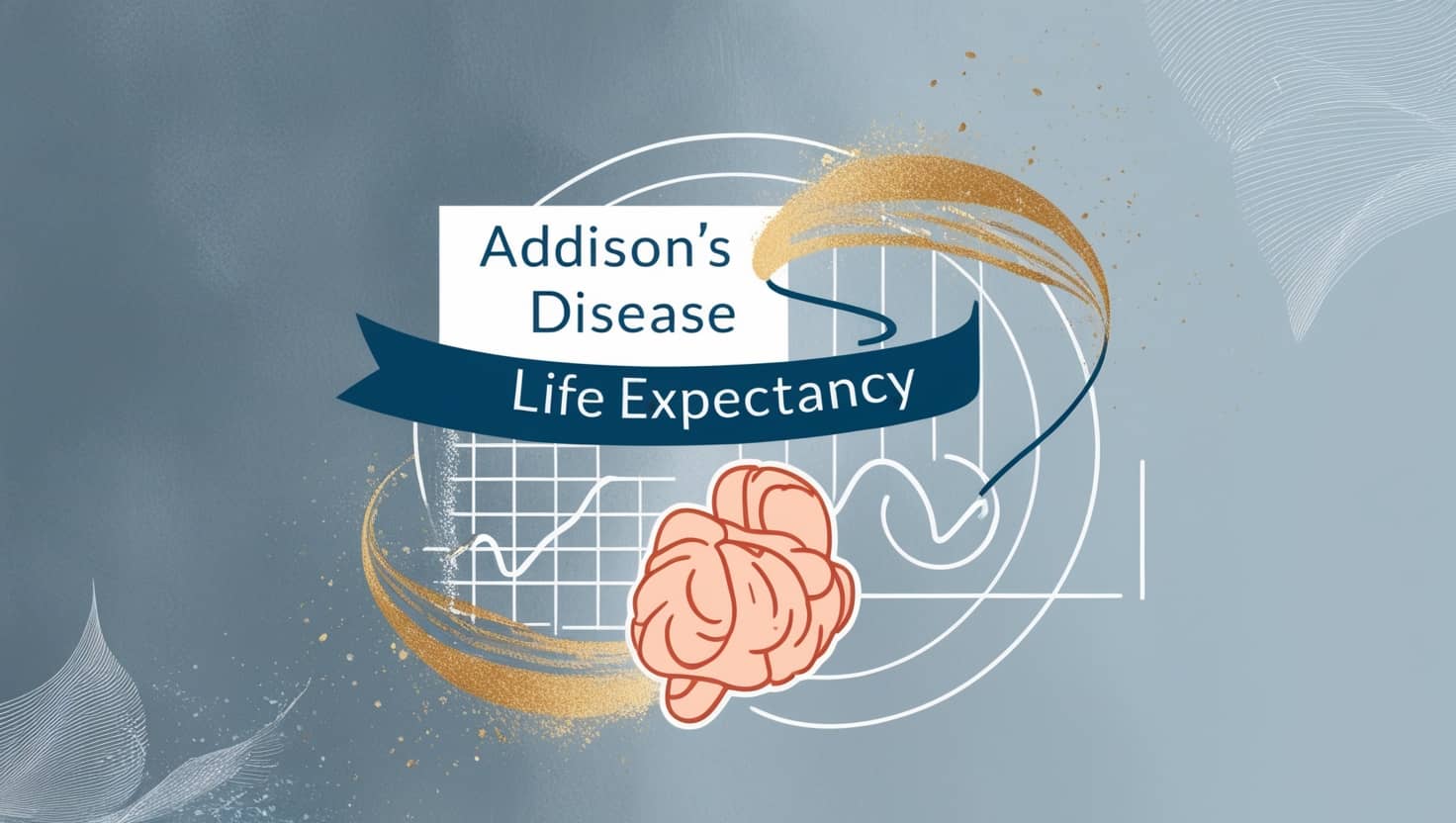Addison’s disease is an autoimmune disease that affects the adrenal gland and leads to its failure to function.
The average life expectancy for Addison’s patients is 75.7 years for females and 64.8 years for males.
That is, patients lose 3 to 11 years of their life expectancy compared to normal rates.
Factors that affect life expectancy are stress, infection, neglect of treatment, and failure to properly manage the side effects of treatments such as steroid medications.
Addison’s disease causes fatigue, exhaustion, weakness, and pain in muscles and joints.
Come with us through the following paragraphs to learn more details about this disease.
What Is Addison’s Disease and How Does It Affect Life Expectancy?
Addison’s disease is an autoimmune disease that affects the adrenal gland and affects the production of the hormones cortisol and aldosterone.
Despite the importance of these hormones for the body’s functioning, patients can live a healthy and active life with appropriate treatment.
Most importantly, they avoid developing adrenal crises, which are considered a life-threatening condition.
Symptoms of Addison’s disease include:
- Fatigue.
- Weight loss.
- Low blood pressure.
- Mood swings.
- Dark skin color.
- Salt cravings.
Treatment:
The disease is treated with replacement medications such as hydrocortisone and fludrocortisone, which are prescribed daily.
With proper health care and treatment, Addison’s disease life expectancy can approach normal levels. (Erichsen, 2008)
Factors That Influence Life Expectancy in Addison’s Disease Patients
Factors that affect the life expectancy of Addison’s disease include:
- Neglecting treatment or not taking it correctly or neglecting medical follow-up and not adjusting doses according to the condition.
- The patient’s lack of awareness of the symptoms he suffers from and their source, which makes him neglect treatment and expose him to an adrenal crisis that threatens his life.
- Other health problems that the patient may suffer from, such as cardiovascular diseases, lead to an exacerbation of the symptoms of Addison’s disease.
- Complications resulting from long-term steroid medications, such as metabolic disorders, loss of bone density, and increased risk of infection.
- Psychological problems resulting from chronic diseases, such as depression, which makes the patient refrain from receiving treatment. (Henry, 2016)
Tips for Managing Addison’s Disease to Improve Quality of Life
Here are some tips that may improve your life expectancy and quality of life with Addison’s disease:
- Make sure you have enough medication, take it on time, and carry it with you, especially if you are traveling or away from home for long periods.
- Be sure to carry a corticosteroid injection kit with a ready-made syringe and an ID card with your health status, so that you can be cared for as quickly as possible if you have an adrenal crisis anywhere.
- Wear a medical alert bracelet or tag that explains your condition.
- Communicate with your health care provider regularly, follow instructions, and follow and stick to a clear treatment plan.
- Eat a healthy diet that is free of saturated fats and rich in vegetables and fruits, and take salt as prescribed by your doctor.
- Be sure to get plenty of water and fluids and stay hydrated, especially in hot weather or when stressed.
- If you have an infection, increase the dose of steroid medications and make sure you stay hydrated.
- If you feel like vomiting, you can take hydrocortisone again, and if you vomit again within half an hour of taking the medicine, give it by injection.
- You can do appropriate exercises to improve muscle strength and support bone strength, and listen to your body and do not stress it.
Read Also: Life Expectancy of Sickle Cell Anemia
References
Erichsen, M. M. (2008). PubMed. Retrieved from Normal overall mortality rate in Addison’s disease, but young patients are at risk of premature death : https://pubmed.ncbi.nlm.nih.gov/19011006/
Henry, M. (2016). PubMed. Retrieved from Poor quality of life, depressed mood, and memory impairment may be mediated by sleep disruption in patients with Addison’s disease: https://pmc.ncbi.nlm.nih.gov/articles/PMC4760687/








